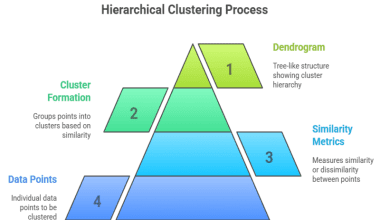Summary: In 2025, data scientists in India will be vital for data-driven decision-making across industries. This guide covers their roles, essential skills, tools, education, industry-specific demands, career paths, and salary expectations. It highlights the growing opportunities and challenges in India’s dynamic data science landscape.
Introduction
In 2025, the role of a data scientist remains one of the most sought-after and lucrative career paths in India’s rapidly growing technology and business sectors. As Indian companies across industries increasingly embrace data-driven decision-making, artificial intelligence (AI), and automation, the demand for skilled data scientists continues to surge.
This comprehensive blog delves into the evolving job description of data scientists in India, highlighting key responsibilities, skills, tools, qualifications, industry-specific roles, career growth, and salary trends specific to the Indian market.
Key Takeaways
- Data scientists in India require strong programming and machine learning skills for diverse industries.
- Effective communication and business acumen are essential alongside technical expertise.
- Big data and cloud technologies are increasingly important in Indian data science roles.
- Career growth ranges from entry-level to leadership with competitive salaries in metro cities.
Who is a Data Scientist?
A data scientist in India is a professional who collects, processes, analyzes, and interprets vast amounts of data to generate actionable business insights.
They combine expertise in statistics, programming, and domain knowledge to create predictive models and data-driven solutions that help organizations optimize operations, enhance customer experiences, and innovate products.
In the Indian context, data scientists often work in dynamic environments such as IT services, fintech, e-commerce, healthcare, and telecom sectors. They are expected to be versatile, handling everything from data engineering and exploratory analysis to deploying machine learning models and communicating insights to business stakeholders.
The role demands both technical skills and business acumen, as Indian companies increasingly seek professionals who can align analytics with strategic goals.
Key Responsibilities of a Data Scientist in India
While the core responsibilities align with global standards, Indian data scientists often face unique challenges and opportunities shaped by the local market:
- Data Acquisition and Cleaning: Extracting data from diverse sources including legacy systems, cloud platforms, and third-party APIs. Data quality issues are common in Indian datasets, so cleaning and preprocessing are critical.
- Exploratory Data Analysis (EDA): Identifying trends, patterns, and anomalies using statistical tools to understand data characteristics and inform modeling strategies.
- Model Development and Validation: Building machine learning models tailored to business problems such as customer churn prediction, fraud detection, or demand forecasting. Validation techniques ensure models perform well on unseen data.
- Model Deployment and Monitoring: Collaborating with IT and engineering teams to deploy models into production environments and monitor their real-time performance.
- Visualization and Reporting: Creating dashboards and reports using tools like Tableau or Power BI to communicate insights effectively to non-technical stakeholders, including management and clients.
- Cross-Functional Collaboration: Working closely with product managers, marketing teams, and domain experts to ensure data solutions address real business needs.
- Continuous Learning and Innovation: Staying updated with the latest AI and data science research, tools, and best practices to maintain competitive advantage.
Core Skills Required for a Data Scientist Role in India
Indian employers prioritize a balanced mix of technical expertise and soft skills to meet the growing and evolving demands of data science roles. Below are the essential core skills that aspiring and practicing data scientists need to excel in India’s competitive job market:
- Programming Languages: Proficiency in Python and R is essential. SQL remains crucial for database querying, especially given India’s large IT services ecosystem.
- Statistics and Mathematics: A Strong understanding of probability, statistics, linear algebra, and optimization is fundamental to developing robust models.
- Machine Learning & AI: Hands-on experience with supervised and unsupervised algorithms, deep learning frameworks (TensorFlow, PyTorch), and natural language processing (NLP) is highly valued.
- Big Data Technologies: Familiarity with Hadoop, Apache Spark, and cloud platforms like AWS, Azure, and Google Cloud is increasingly important as Indian companies scale data operations.
- Data Visualization: Ability to create intuitive visualizations using Matplotlib, Seaborn, Tableau, or Power BI to convey insights clearly.
- Domain Knowledge: Understanding industry-specific challenges in sectors such as finance, healthcare, or retail enhances the relevance of data solutions.
- Communication Skills: Strong verbal and written communication to explain complex analyses to diverse audiences, including clients and senior management.
- Problem-Solving and Critical Thinking: Creativity in addressing ambiguous problems and designing innovative data-driven solutions.
- Ethical Awareness: Knowledge of data privacy laws (such as India’s Personal Data Protection Bill) and ethical AI practices is becoming mandatory.
Typical Tools and Technologies Used
Indian companies often integrate open-source tools with proprietary software to optimize costs and scalability. Data scientists in India use a broad toolkit tailored to local industry needs:
- Programming: Python, R, SQL.
- Data Manipulation: Pandas, NumPy, dplyr.
- Machine Learning: Scikit-learn, TensorFlow, Keras, PyTorch, XGBoost.
- Big Data: Apache Hadoop, Apache Spark.
- Databases: MySQL, PostgreSQL, MongoDB.
- Visualization: Tableau, Power BI, Matplotlib, Seaborn.
- Cloud Platforms: AWS, Microsoft Azure, Google Cloud Platform.
- Collaboration and Version Control: Jupyter Notebooks, Git, GitHub.
Qualifications and Education in the Indian Market
To become a data scientist in India in 2025, a strong educational foundation combined with continuous skill development is essential. The typical qualifications and educational pathways include:
- Bachelor’s Degree: In computer science, statistics, mathematics, engineering, or related fields from reputed Indian institutes (IITs, NITs, IISc) or universities.
- Master’s and Ph.D.: Advanced degrees in data science, AI, or applied mathematics are highly regarded, especially for research-oriented roles in sectors like healthcare and finance.
- Certifications: Industry-recognized certifications such as Microsoft Certified: Azure Data Scientist Associate, Google Professional Data Engineer, and courses from platforms like Coursera, Udacity, and Great Learning add significant value.
- Continuous Upskilling: Given the fast-changing landscape, Indian data scientists invest heavily in online courses, hackathons, and workshops to stay competitive.
Industry-Specific Data Scientist Roles
India’s rapidly evolving economy offers a wealth of opportunities for data scientists across various sectors. Each industry demands specialized data expertise to solve unique business challenges and drive innovation. Below is an overview of prominent industry-specific Data Scientist Job Description and roles in India as of 2025:
- IT and Software Services: Building scalable analytics solutions for global clients, including predictive maintenance, customer analytics, and automation.
- Finance and Banking: Fraud detection, credit scoring, risk management, and algorithmic trading are key focus areas.
- E-commerce and Retail: Personalization engines, demand forecasting, and supply chain optimization drive growth.
- Healthcare and Pharma: Predictive diagnostics, drug discovery, and patient data analytics are emerging fields.
- Telecommunications: Network optimization, customer churn prediction, and service quality analytics.
- Manufacturing: Industry 4.0 initiatives leverage data science for predictive maintenance and quality control.
- Startups and Emerging Sectors: AI-powered fintech, edtech, and agritech startups offer innovative roles requiring broad skill sets.
Career Path and Growth Opportunities
Career growth is accelerated by gaining domain expertise, leadership skills, and proficiency in emerging technologies. The Indian data science career ladder typically follows:
- Entry-Level Data Scientist: Focus on data cleaning, exploratory analysis, and basic model building. Salaries range from INR 6-10 LPA.
- Mid-Level Data Scientist: Greater autonomy in model design, project leadership, and cross-team collaboration. Salaries rise to INR 10-22 LPA.
- Senior Data Scientist: Strategic role involving mentoring, complex problem-solving, and influencing business decisions. Salaries range INR 20-35 LPA.
- Lead Data Scientist / Manager: Managing teams and aligning data strategy with business goals. Salaries can exceed INR 35 LPA.
- Specialized Roles: Machine Learning Engineer, AI Researcher, Data Architect, and Data Science Consultant.
- Executive Roles: Chief Data Officer (CDO) or Head of Analytics positions in large enterprises.
Salary Expectations and Job Market Outlook in India
Data science remains one of the highest-paying roles in India’s tech ecosystem:
Top metro cities like Bangalore, Mumbai, Delhi NCR, Hyderabad, and Pune offer the highest salaries, with Bangalore leading due to its tech ecosystem.
Industry-wise, finance, IT, e-commerce, and healthcare offer lucrative packages. Companies like Microsoft, Amazon, Google, and leading Indian startups pay competitive salaries.
Emerging roles in AI specialization, robotics process automation (RPA), and data ethics are expected to command premium pay.
The job market outlook is robust, with demand expected to grow steadily as Indian companies deepen their AI and analytics adoption.
Conclusion
In 2025, the Data Scientist Job Description and role in India will be more dynamic and rewarding than ever. With rapid digital transformation across sectors, Indian companies seek professionals who combine strong technical skills with business understanding and communication prowess.
Salaries are competitive and expected to grow, especially for those with expertise in AI, big data, and cloud technologies. Aspiring data scientists should focus on continuous learning, gaining domain knowledge, and practical experience to thrive in India’s vibrant data ecosystem.
The future for data scientists in India looks bright, with expanding opportunities across industries and increasing recognition of data as a strategic asset. Whether you are a fresher or an experienced professional, investing in the right skills and staying updated with market trends will ensure a successful and fulfilling career in data science.
Frequently Asked Questions
What Are The Job Responsibilities Of A Data Scientist?
Data scientists in India collect, clean, analyze data, build models, and communicate insights to drive business decisions.
What Exactly Do Data Scientists Do?
They transform raw data into actionable insights using statistical analysis, machine learning, and visualization techniques.
What Skills Do Data Scientists Need?
Key skills include Python, R, SQL, machine learning, statistics, data visualization, and communication.
Is 3 Months Enough For Data Science?
Three months provides a basic introduction but is insufficient for mastery. Comprehensive learning requires months to years.




